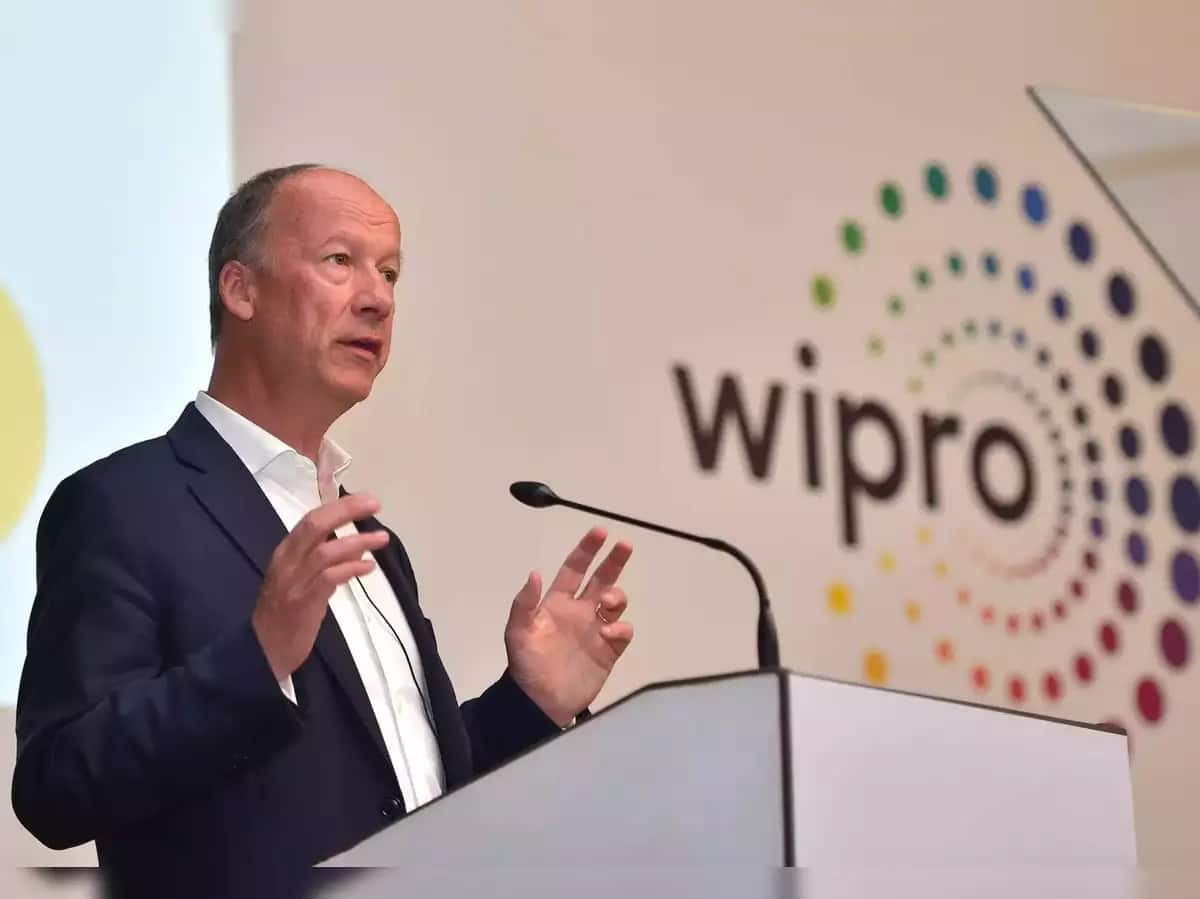 Top 3 stories
Top 3 stories
TCS CEO gets candid on macro concerns

K Krithivasan, the recently appointed CEO of Tata Consultancy Services, expressed his deep affection for his hometown, reminding us of the popular Tamil song "Namma Chennai Chancey Illa" (which roughly means there is no place like Chennai)
But the Chennaite faces a challenging road ahead as clients exercise caution in uncertain times.
Driving the news
Krithivasan admitted that it would be difficult to achieve double-digit growth for TCS this year amid a weak macro environment. He also said it would take at least a quarter or two before the company can confidently put difficult times behind it.
Tell me more
Krithivasan, who has been meeting with clients globally, expects growth momentum to return once uncertainty ends in major markets.
- While some clients may pause spending in certain areas, he highlighted that programs with well-defined return on investment and cost optimization projects would continue.
Despite the challenges, Krithivasan remains confident that TCS can meet its margin band target of 26-28%.
'Nation building over financial gains'
TCS CEO sees "nation building" as more important than profit margins in government projects.
Citing the recent deal with BSNL to deploy 4G networks across India, Krithivasan said that the company does not solely focus on making money from government projects, but sees it as an opportunity for 'nation-building.'
Watch the full interview here
Moving on from India’s largest IT company to the fourth-largest IT firm which reported its Q1 results today.
Wipro headcount shrinks for third straight quarter

Wipro's headcount has fallen for the third consecutive quarter, with the company ending the quarter with nearly 9,000 fewer employees than the previous quarter. This is happening even as attrition has continued to trend downward.
Why is this important? Hiring is an indicator of demand, and the decline in demand has impacted the entire IT industry.
- Wipro's headcount is now at 2.49 lakh, and its attrition rate on a trailing-twelve-month basis is 17.3%
In fact, the company has been facing the ire of fresh graduates who have been waiting over a year to be onboarded. Wipro has maintained that it will onboard new employees as needed. However, in Q1FY24, it did not onboard any of the graduates who are still waiting.
Report card
On the numbers front, Wipro’s figures were down — as expected.
- Revenue fell by 2.8% in constant currency terms to $2.78 billion, within the company's guidance but below analyst estimates
- Bookings were at $3.7 billion
- EBIT margin was at 16%
- Profit fell by 6.65% to Rs 2,870 crore
Wipro's revenue growth guidance for the next quarter is -2% to 1% in constant currency, and it expects to be in a similar margin range.
Behind the numbers
The softness in demand continues to impact the company, as seen by the decline across its geographies and impacted verticals such as BFSI (banking, financial services, and insurance), consumer, and communications.
- Wipro is seeing ramp downs in BFSI, technology, and communications, according to CEO Thierry Delaporte
Smaller discretionary spends have also been postponed or stopped, and the market remains as uncertain as it was a quarter ago.
Fintechs jump onto digital lending frenzy

From large fintech platforms like PhonePe to new-age startups like Jar, everyone wants a big piece of the digital lending pie. The market is growing rapidly, and here are some reasons why.
But first, some numbers
The growing optimism about digital lending coincides with a significant increase in loan disbursement.
- The volume of disbursements experienced a growth of nearly 2.5 times, reaching 7.26 crore in FY23
- While the value of disbursements went up to Rs 92,848 crore, a whopping 2.8 times increase
In addition, lending-focused companies have dominated startup funding this year, attracting approximately one-third of overall investments.
Why is lending so attractive?
Apart from the fact that India has a credit-starved market, there are other significant tailwinds.
- A young demographic and rising income are creating the right conditions for the market to grow
- RBI has recognised digital lending through Digital Lending Guidelines (DLGs) and set a First Loss Default Guarantee (FLDG) rate of 5%
- The underpenetrated B2B lending market is attracting new startups
Go deeper
Today in Tech History: Memory chip alliance formed

On July 13, 1992, IBM, Toshiba, and Siemens announced a joint venture to develop memory chips for computers. This was a significant departure from the norm in the semiconductor industry, which had traditionally been characterised by fierce competition between companies.








